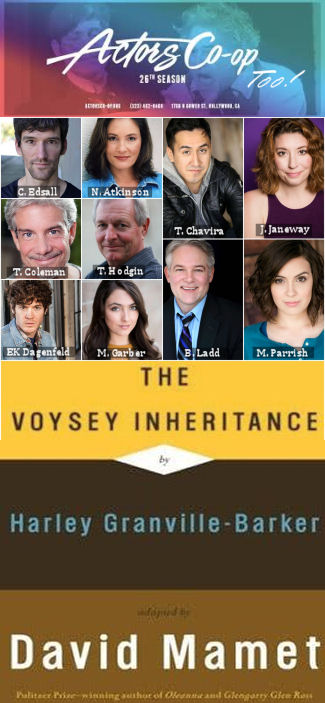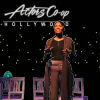 Reading through my Facebook feed today, an article from Haaretz caught my eye: ‘Religion-hating Gangsters’: Israeli Orthodox Vitriol Toward Reform Jews Escalates Amid Kotel Crisis. As the article is a premium article (meaning if you don’t come in right, it is behind a paywall), I’ll quote from it a bit more than I normally would:
Reading through my Facebook feed today, an article from Haaretz caught my eye: ‘Religion-hating Gangsters’: Israeli Orthodox Vitriol Toward Reform Jews Escalates Amid Kotel Crisis. As the article is a premium article (meaning if you don’t come in right, it is behind a paywall), I’ll quote from it a bit more than I normally would:
“Inappropriate and insolent.” That’s how Rabbi Abraham Gordimer, a member of the Rabbinical Council of America and the New York Bar, dubbed Reform Jewish protests against the government’s decision to freeze plans for a pluralistic prayer space at the Western Wall.
Rabbi Gordimer’s comments, published on the right-leaning Arutz Sheva website in English, were mild compared to the wave of bile heaped upon the followers of Reform Judaism in Israel’s right-wing Hebrew press. Readers would have been forgiven for forgetting that the government itself had approved the plan last year after four years of negotiations brokered by Jewish Agency Chairman Natan Sharansky.
Far-right lawmaker Betzalel Smotrich (Habayit Hayehudi) accused the Reform movement of “dragging Diaspora Jews into a fight.” He said responsibility for the crisis lay with “a small fringe group of a few dozen activists in the Israeli Reform movement. They don’t care about the right of an individual to pray according to his beliefs.”
A profile of Reform leader Rick Jacobs in Israel’s Maariv daily newspaper and the NRG website portrayed him as an “extreme left,” pro-BDS “gangster” as one of the many Israelis who circulated the story on social media described him. A commentary on Channel 20 accused him of being a “selective Zionist” and creating a platform for anti-Semitic propaganda.
[…]
Non-Orthodox Jews were depicted as outsiders with no legitimate say in what should or shouldn’t happen at the Western Wall or in Israel at large.
[…]
Anti-Reform sentiment runs deep among Israel’s Orthodox leadership. At the Haaretz conference earlier this month, lawmaker Moshe Gafni of United Torah Judaism explained why he could not align with left-wing parties even though he found them “more intelligent” than their counterparts on the right. “Why don’t I go with the left? Because you sit with the Reform,” he said.
Last month, Rabbi Meir Mazuz, head of Yeshivat Kashei Rachamim, compared Reform Jews to pigs in his weekly sermon. “They are not Jews,” he said.
Rabbi Michael Marmur, provost of Hebrew Union College-Jewish Institute of Religion in Jerusalem, said there has long been among some streams of the Orthodox movement “a long history of looking at the Reform movement as a boogey man and a tendency to blame Reform for all the heinous things in the world.”
“As we make more inroads into the conversation about what Israel should look like, there is an inflationary spiral in the rhetoric,” he said. “The vitriol you see expressed is in direct proportion to us trying to make a stand. We are wheeled out as the enemy, as traitors. The article about Rick Jacobs is a classic example. If Reform Jews and the Reform movement he represents are understood as a dagger in the back, as a fifth column, then the problem is neutralized.”
As I read through this, I was struck by the parallels in the rhetoric that I have seen — and continue to see — from what I would characterize as many in the far right — the ardent Trump supporters. Further, given the very un-Presidential tweet of an animation showing our President* beating up and bloodying the mainstream media, personified by CNN, I dare to say that this is rhetoric I’ve seen from our President himself.
From my very Conservative friends on my Facebook feed, I have seen posts making the same claims about Liberals that the Orthodox make about Reform. Read the quote above and replace the sentiment with Liberals, and it will sound familiar. “They are not Americans”. There is “a long history of looking at the Liberal movement as a boogey man and a tendency to blame Liberals for all the heinous things in the world.” “Liberals are wheeled out as the enemy, as traitors. The article about [insert your Democratic candidate] is a classic example. If the Democratic Party and the Liberal/Progressive movement he represents are understood as a dagger in the back, as a fifth column, then the problem is neutralized.” As to why moderate Republicans might not work with the Democrats? Lawmaker [insert name here] of the Republican Party explained why he could not align with left-wing parties even though he found them “more intelligent” than their counterparts on the right. “Why don’t I go with the left? Because you sit with the Liberals/Progressives,”
It sounds far too familiar. Yet from Reform Jews towards Orthodoxy, just as from Liberals towards Conservatives, I don’t see the same level of hatred or divide. There is the willingness to accept the diversity of opinion, to recognize that we can agree to disagree. Reform Jews don’t characterize Orthodox as the source of all problems in Judaism, just as Liberals do not characterize all Conservatives as the source of all problems in America. (Well, most don’t).
If this country is to move forward and not split apart, we must learn to see people as people and not the abstract enemy that we hate. Separation and hatred plays to activist bases, but doesn’t solve problems. Unfortunately, we may never get past this if the leadership of the parties do not set the example. If our leaders cannot work together, how can the people ever have a hope of doing the same. My voice is insignificant — I’m represented by congresscritters and senators that already feel as I feel. I’d urge those supporting the President to urge him to act Presidential, to remember that he is the President of the entire country, not just the minority of the voters that voted for him. But, alas, even as congressional leadership urges that, he is ignoring it.
Almost 27 years ago I started the Liberal Judaism Mailing List to provide a place where people from different Jewish movements could discussion issues in an environment where we respected each others as Jews and didn’t let movemental affiliation impact that respect. Fundamental to that discussion was the notion that saying lies or propagating myths about the other side is essentially Lashon Horah, propagation of gossip and lies. Through hard moderation, we were able to keep a positive dialog going for a long time. Why can’t, as Americans, we do the same?
As we approach this July 4th, we must remember that the original motto of this country was not “In God We Trust”, and there wasn’t an emphasis on pushing Christianity on the people (the only reference to religion in the Constitution was the fact that there shouldn’t be a religious test for office holders). Rather, the original motto was, E Pluribus Unum, “From Many, One”. It is the many voices that came together to make this nation strong, not one voice stomping out all the others.
*: Yes, our President. Whether you voted for him or not, he is President of this country. The fact that he doesn’t act very Presidential, as someone people can respect and model behavior after, is a different issue.



 What would you do if you discovered that your local bank was cheating people? Oh, it was paying interest and making loans and such, but if all the depositors came and wanted their money, they would discover it was all a house of cards, and no one could be made whole. If it was 2008, you’ld likely be OK — after all, that’s why we have deposit insurance. Close the bank, pay the depositors, and sell any remaining assets to another bank.
What would you do if you discovered that your local bank was cheating people? Oh, it was paying interest and making loans and such, but if all the depositors came and wanted their money, they would discover it was all a house of cards, and no one could be made whole. If it was 2008, you’ld likely be OK — after all, that’s why we have deposit insurance. Close the bank, pay the depositors, and sell any remaining assets to another bank.